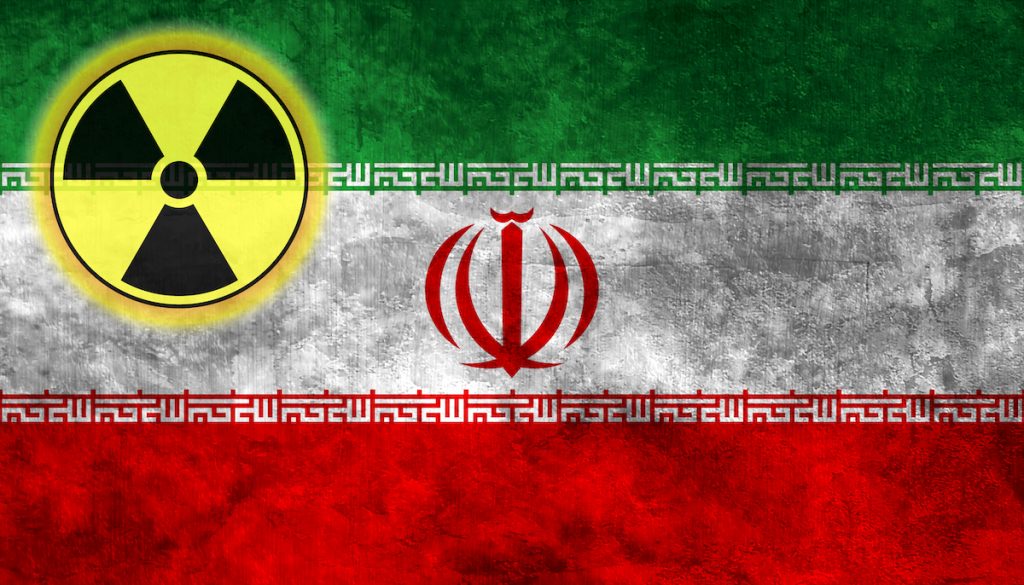Australia/Israel Review
Why is Iran returning to the negotiating table?
Nov 22, 2021 | Yaakov Amidror

After several months in which Iran perplexed American negotiators, it has announced it will return to nuclear talks in late November.
This is an unconditional return, contrary to the position previously expressed by Iran, which demanded an easing of the sanctions imposed on it before any talks could take place.
Thus, the Iranian concession is an apparent American success. Still, it is unclear whether this indeed will be the case since Iranian stubbornness in the negotiations could drag talks out again, and things could end back at square one.
Moreover, Iran now openly threatens that the talks will fail unless the US offers guarantees that would bind future administrations’ behaviour. However, any such attempt to enshrine the agreement as a formal treaty would require ratification by the Senate; the necessary two-thirds majority is nowhere in sight.
The Iranian tactic to delay the return to talks was possibly designed to make the Americans so enthusiastic about the mere resumption of negotiations that they would agree to the Iranian demand and ease the sanctions for the duration of the talks.
The answer to why Iran is returning to the talks is thus simple: the present leadership in Teheran has a clear interest in returning to the 2015 nuclear agreement known as the JCPOA because it is a good agreement for the Iranians – who seek to develop nuclear weapons. The Iranians understood that the nuclear deal was good for them, and now, even more so, in light of their rapid progress in their enrichment program.
Moreover, they delayed the resumption of talks because they realised that a military option did not exist, neither in the current Administration nor the previous one. The absence of a military option was the main weakness the Iranians sensed when the previous US Administration withdrew from the nuclear deal.
It was a significant mistake to withdraw from the deal without charting a viable military option and demonstrating the determination to use it if necessary. The Iranians realised that no matter what they did, except for the assembly of a nuclear bomb detected by the Americans or other intelligence services, the US did not want to use military force to stop the nuclear project.
The Iranian perception that there is no military option on the table will also be their basic assumption in future negotiations.
Therefore, the Iranians know that the United States has no alternative but to return to the agreement, so they will not rush to fold – and may first try to remove sanctions and gain other economic benefits.
The Iranians also observed that, after they launched drone attacks against an American base in al-Tanf in eastern Syria last month, the United States failed to respond in any serious manner. Even though there were no casualties, this event demonstrated Iran’s determination and reading of American behaviour.
This lack of an American response signalled that the US wants to return to negotiations at almost any cost. But, unfortunately, it also might lead Iran to conclude that it can continue its aggressive behaviour in the Middle East as long as there are prospects for further talks.
Further, the perceived American weakness will motivate the Iranians to run out the clock through negotiations. The American hope for the resumption of the talks, and the talks themselves, give the Iranians more freedom of action. They restrict US activity in response to provocations, including even elementary acts of force protection, and thus harm deterrence.
The United States emphasises that the return to the nuclear agreement is only a first step, after which it intends to enter into talks aimed at a better and longer deal. However, the chances of reaching such an agreement are nil – because the United States will have no leverage over Iran.
Israel cannot and should not interfere with the American talks with Iran. Still, Israel must obtain from the US a commitment to complete the negotiations in a short time and not let the Iranians procrastinate for months.
Israel must learn what the US response will be if it turns out that there is no chance of reaching an agreement and what may be the timetable for attempting to reach a longer and stronger deal.
Either way, Israel must prepare for the possibility of defending itself – because a nuclear Iran is not an option that Israel can accept. As it was declared and agreed by a few American presidents, Israel should be able to defend itself by itself.
An effort to prevent Iran from going nuclear will not be simple and perhaps even be dangerous, but is necessary.






